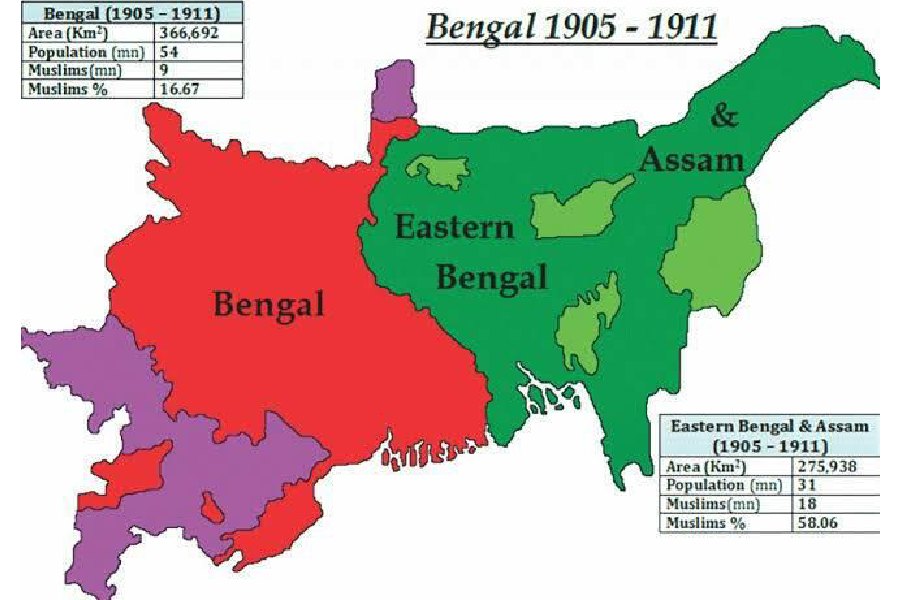Even as a controversy rages over rival demands for a Bengal Day, former MP and historian Sugata Bose said that his grandfather and Netaji Subhas Chandra Bose's elder brother Sarat Bose had raised the demand for "united Bengal within united India".
While the BJP wants June 20, the day legislators from what now constitutes West Bengal voted for partitioning Bengal in 1947, to be celebrated as Bengal Day, the state legislature, which has an overwhelming TMC majority, passed a resolution earlier this month declaring 'Poila Baisakh' or the first day of the Bengali calendar as the state day with Chief Minister Mamata Banerjee terming partition a "painful and traumatic process." "The legislators (from West Bengal) who were mostly from the Congress voted for partition as the Congress high command ordered them to vote for partition. It was really a Congress decision. The Hindu Mahasabha had just one MLA," Sugata Bose explained to PTI in an interview.
The BJP's West Bengal unit has claimed that it was the efforts of Mahasabha leader Syama Prasad Mookerjee, who founded Jana Sangh (the BJP's political predecessor), that had led to the partition of Bengal.
"In a sense, it was pre-ordained as the partition plan was announced by Lord Mountbatten on June 3, 1947 and the Congress party accepted it on June 15 and its MLAs in Bengal voted for it on June 20," he added.
The undivided Bengal provincial assembly had 250 members, of whom only 78 represented general seats and 117 were elected against reserved Muslim seats. The rest of the MLAs represented special interests like the Anglo-Indians, Europeans, zamindars and universities, among others.
The Congress, which had won most of the general seats and some of the special interest seats, had 87 MLAs, while the Muslim League had 115 and the Hindu Mahasabha had a lone MLA representing the University of Calcutta.
On June 20, 1947, at the first meeting of the entire legislature, 120 legislators voted for a united Bengal which was less than that required to decide on the future of the province.
Consequently, the MLAs from West Bengal who were overwhelmingly Congressmen voted 58 to 21 in favour of partition and joining India, while East Bengal's legislators voted 107 to 34 to join East Pakistan.
"The legislators did not have any freedom of choice... they acted according to whips issued by The Congress (in favour of creating West Bengal) and the Muslim League (in favour of creating East Pakistan)," Bose said.
A countervailing idea of a united Bengal had, however, emerged among a section of leaders and intellectuals of the province for a few months before this and had several proponents including Netaji's brother Sarat Bose.
"All our great freedom fighters had envisaged a united Bengal within a united India. Unfortunately, in 1946, relations between the two religious communities deteriorated and the idea of partition gained ground.
"Sarat Bose tried his utmost to preserve this unity of Bengal and India... he wrote to Vallabhbhai Patel on his plan for a united Bengal inside a united India... his idea was to undermine the two-nation theory," said Sugata Bose, who holds the Gardiner chair of history at Harvard University.
Sarat Bose's proposal had the support of Huseyn Suhrawardy, the last premier of united Bengal, who despite being a Muslim Leaguer, whom many blame for allowing the 1946 'Great Calcutta killings' to occur under his watch, had joined forces with Mahatma Gandhi to stop rioting in the city and had stayed on as a citizen of India for a year after partition.
The plan to have a "united Bengal within a united India" which had in Sugata Bose's words "the initial blessings of Gandhiji", however, was still-born as the Congress high command as well as the Muslim league did not favour it.
With most MLAs representing the League and Congress, there was no chance of the move fructifying, though it also attracted the support of Kiron Shankar Roy, later home minister of West Bengal and progressive Muslim Leaguer Abul Hashim.
Bose said, "The problem was not just one between religious communities. Those who had a federal vision of India lost out to those who wanted to inherit the centralised structure of British India." On June 1, Gandhiji wrote to Sarat Bose that he had discussed the idea with Sardar Patel and Jawaharlal Nehru and the two Congress leaders were "very much opposed to it", rendering the nascent plan for keeping the two Bengals together stillborn.
On July 3, 1947, a shadow cabinet was formed by the Congress party, led by P C Ghosh to take over the running of West Bengal once partition came about.
The Muslim League which no longer trusted Suhrawardy, formed a similar cabinet led by Khwaja Nazimuddin, which would run East Bengal.
The partition carnage which followed and long lines of refugees who fled leaving behind their land and hearth is part of many families' personal history as is the aftermath of life in refugee camps, the struggle to rebuild lives, and to escape the curse of forced poverty.
Except for the headline, this story has not been edited by The Telegraph Online staff and has been published from a syndicated feed.










